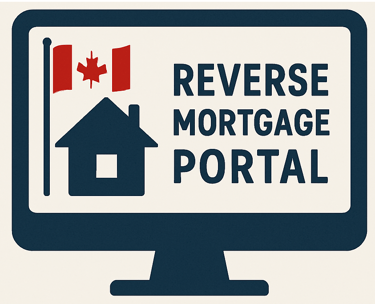Pros and Cons
Review of All Aspects
3 min read


Reverse Mortgage: Pros and Cons
A reverse mortgage offers unique financial flexibility for Canadian homeowners aged 55 and older, providing a way to access home equity without selling or moving. This specialized mortgage allows seniors to convert part of their home's value into tax-free cash while maintaining full home ownership. Below is a review of the major advantages and disadvantages of reverse mortgages.
PROS
1. Guaranteed Home Ownership
Unlike traditional mortgages, a reverse mortgage guarantees you’ll keep your home for life. The lender cannot repossess your property, because there are no payments to make. This protection is explicitly written into the legal agreement, offering unprecedented security for homeowners.
2. Financial Freedom and Flexibility
Reverse mortgages unlock the equity trapped in your property, giving you complete freedom to use the funds as you choose. Whether you want to supplement retirement income, renovate your home, help your children buy a house, cover medical expenses, or enjoy leisure activities, the money is yours without restrictions. There’s no reason to keep being “house rich and cash poor”.
3. Tax-Free Cash Benefit
One of the most attractive features of a reverse mortgage is that the received funds are 100% tax-free. Since the money is considered a loan advance, it doesn’t count as taxable income. Overall, this provides a significant financial advantage over other retirement funding sources such as RRSPs or a sale of assets.
4. No Impact to your Government Benefits
Since reverse mortgages are tax-free, there is no need to worry about claw backs or your pension being reduced next year. These can be significant amounts if you are considering larger withdrawals for renovations or gifts to family members.
5. No Mandatory Repayments
Reverse mortgages don’t require monthly payments, eliminating the stress of additional financial obligations. Lenders limit borrowing based on your age with a maximum of 55% of your home’s value that can be borrowed. This helps preserve your home’s equity while providing financial flexibility.
6. Market Downturn Protection
Even during housing market fluctuations, reverse mortgage holders are protected. The loan is guaranteed to never exceed your home’s value, ensuring you won’t leave a financial burden for your heirs.
CONS
1. Interest Rate Considerations
Every mortgage requires interest on borrowed funds and reverse mortgages are no exception. While interest rates for reverse mortgages are typically higher than traditional mortgages and HELOCs (Home Equity Lines Of Credit), they remain lower than unsecured loans, car loans or credit cards. Home value appreciation can often offset these interest charges as we have seen over the past 15-20 years.
2. Potential Estate Impact
A reverse mortgage may reduce the inheritance value for your family. However, this depends on how much money you withdraw and your home's appreciation rate. When compared to other options, such as downsizing or selling assets, a reverse mortgage may be more beneficial to your estate. To avoid any problems, discuss your options with family members prior to making any decisions.
3. Eligibility Requirements
Not everyone qualifies for a reverse mortgage. All property owners must be at least 55 years old, and the amount available to borrow depends on the owners' ages. The product is only applicable to primary residences and geographical location can have a big impact on the amount available to borrow.
4. Mobility Limitations
Obtaining a reverse mortgage is a great way to stay in your home but if you decide to move in the future, it can complicate your plans. In order to relocate, you will need to close out the mortgage, typically using your home's sale proceeds. However, the same can be said about any type of mortgage or home equity line of credit (HELOC).
5. Early Termination Penalties
If your circumstances change in the first 10 years of a reverse mortgage, you will be liable for penalties, similar to most types of mortgages. These penalties start from as high as 5% in the first year and decrease every year.
Conclusion
A reverse mortgage can be an excellent financial tool for Canadian seniors, providing tax-free access to home equity while maintaining ownership. However, it's crucial to understand both the advantages and potential drawbacks before making a decision.
By carefully evaluating your personal financial situation and long-term goals, you can determine whether a reverse mortgage aligns with your retirement strategy. Consulting a mortgage specialist is a risk-free way to review your specific financial situation and align it with your goals.
Free Professional Consultation
If you have any unanswered questions, uncertainties or would like to go over your specific financial needs and goals, please contact me at mike.a@reversemortgageportal.ca to set up a call. As a CPA, Chartered Professional Accountant, of over 20 years, I know the importance of understanding the full picture before making recommendations. I look forward to learning more about you and your financial needs so I can help you make the best decision.
Don’t forget to ask about our $400 rebate!
Support
Expert guidance for your reverse mortgage needs
CONTACT US
QUESTIONS
Phone: 647-873-2414
© 2025. All rights reserved.
Mike Arsic, CPA - Mortgage Agent L1
License #M25001353
Brokerage: Mortgageville FSRA 13693
